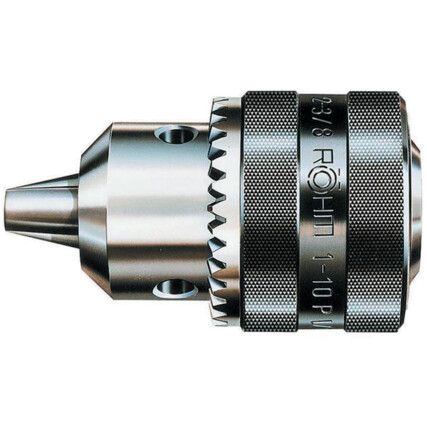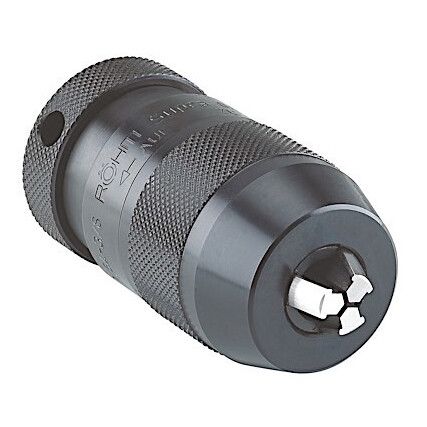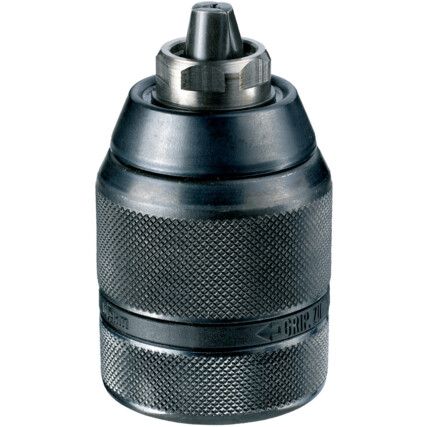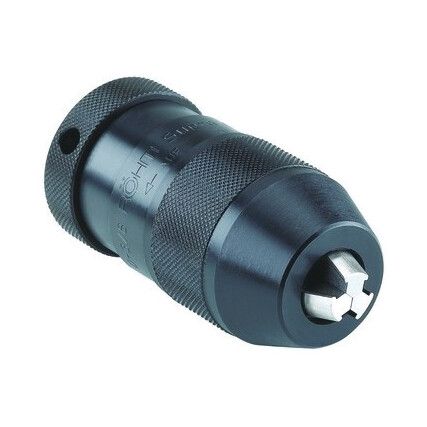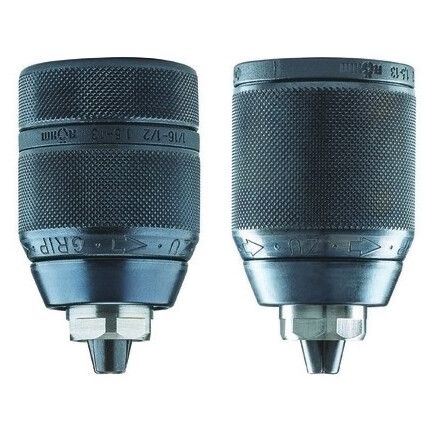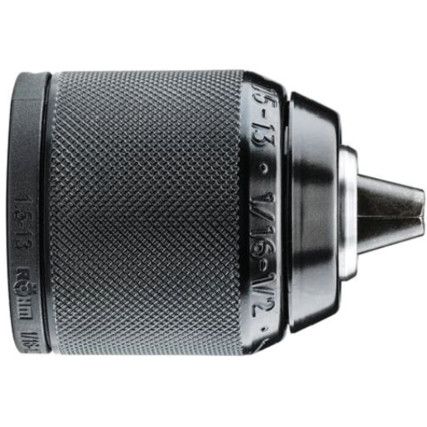Drill Chucks
A drill chuck is designed to keep a drill bit or tool secure in the drill. You can't use a handheld drill without one - and a good one will make drilling quicker, easier, and more accurate.
Cromwell stocks a wide range of high-quality drill chuck adapters, from trusted brands such as Bosch®, Makita®, Chicago Pneumatic®, DeWalt® and many more.
What are drill chucks?
Drill chucks are the chunky steel mechanism at the end of a drill, designed to hold a drill bit or other drill compatible tools on a spindle. They are available in a range of designs and allow you to change the drill bit to suit your needs.
Drill chucks typically consist of three or more jaws that grip the bit. These jaws are tightened and released by a key, or by twisting the chuck if you have a keyless model.
Why a drill chuck?
Picking the right drill chuck can make or break your drill. Low quality drill chucks can lead to inaccurate drilling and poor reliability. A good quality drill chuck gives you the peace of mind to grip any bit, without wear or slippage.
When are drill chucks used?
Drill chucks are required to attach drill bits and various other tools to any type of drill, including:
• Handheld drills
• Stationary drills
• Turning and Milling machines
• Woodworking machines
If you're looking for the ideal chuck or tool for your job but aren't sure about the best one for your needs, feel free to ask our experts for specialised advice.
Drill chuck types
When choosing a drill chuck, you'll be faced with three main options:
• Keyed Chuck - Keyed drill chucks (often called Jacobs chucks) utilise a key to tighten or loosen the chucks' grip on a tool or bit. Whilst they take longer to swap between drill bits, they offer full control over the grip offered by the chuck and offer the advantage of applying more manual torque to hold a bit when slippage is a concern.
• Keyless Chuck - Keyless drill chucks (often called Albrecht chucks) excel at quick bit changes thanks to a straightforward release mechanism. Simply twist the chuck collar counter clockwise to release the bit, and twist clockwise to tighten a new bit in its place.
• Hybrid Drill Chuck - Hybrid drill chucks offer the benefits of both keyless and keyed chucks, at a cost. The keyless part allows for quick and easy bit changes; however, an optional key slot allows for manual tightening when required.
Considerations when choosing a drill chuck
• Material - The two main chuck materials are steel and stainless steel. Steel is strong, hardy, and reliable, yet can be vulnerable to corrosion over time if not treated. Stainless steel chucks are more expensive but are corrosion resistant - making them ideal for hazardous or outdoor applications. Stainless steel chucks are used in scenarios when the drill must be sterilised.
• Chuck Size - Handheld drills come with two major chuck sizes - 3/8" or ½". 3/8" chucks often feature on cheaper, less powerful drills and cannot accept bits larger than 3/8". If you're a professional, look out for a ½" chuck size. These allow you to attach larger tools to your drill, such as hole saws.
• Chuck Durability - Cheap chucks are vulnerable to misalignment of the jaws, resulting in the inability to hold bits steadily under pressure. This impacts your work and can result in more expense than simply buying a sturdier chuck initially.
Drill chuck jargon buster
Chuck Key - The chuck key is crucial for keyed chucks, as it allows you to tighten or release the chuck jaws to fit drill bits and tools - just try not to lose it.
Arbor - The arbor is a device on the drill that the chuck is mounted to. They can adapt most standardised chuck mounts to machine spindle tapers.
FAQs
Are drill chuck keys universal?
No. Drill chucks are commonly available in 2 main sizes - ½" and 3/8". They are also available in ¼" and 5/8". It is important you get a drill chuck key that matches the size of your drill chuck.
When to replace drill chuck?
A drill chuck that is rusty, wobbly, or loose even after being properly fastened is likely to need replacing. Likewise, if the jaws don't tighten properly around a bit, or allow slippage when fully tightened, it's a good sign to replace your chuck.
Why is my drill chuck stuck?
Drill chucks can stick when the screw inside the chuck is has come loose, which prevents any movement of the teeth. Most drill chucks allow you to insert a screwdriver into the chuck to tighten the main screw.
